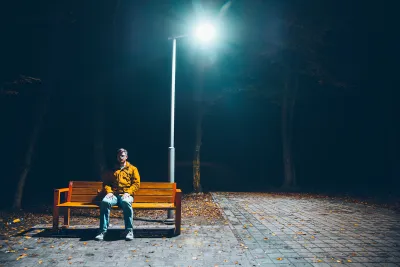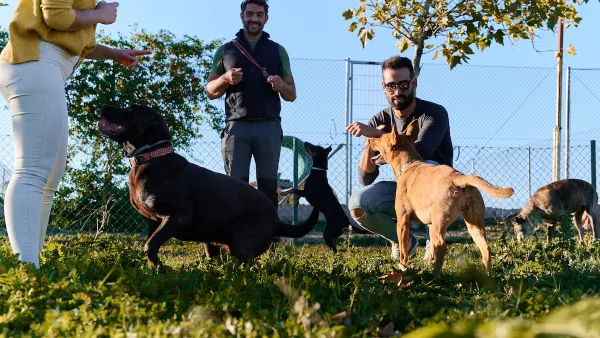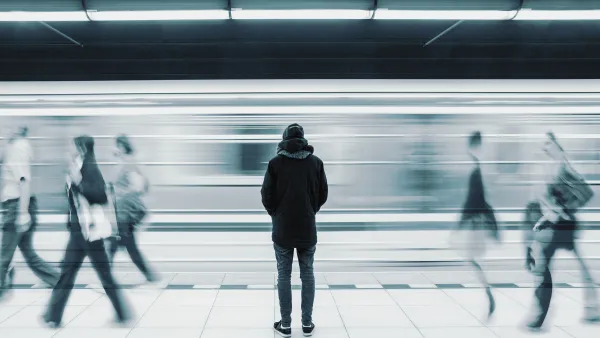Some theorists want to design cities to reduce loneliness and isolation. Others want to accommodate them.

Despite renewed attention due in part to the Surgeon General’s announcement that the nation faces a ‘loneliness epidemic,’ Alan Ehrenhalt, in a piece for Governing, notes that loneliness has been a perennial concern in American society since at least the early 20th century.
However, “Important societal changes pointing toward isolation have gathered steam in the past few decades.”
What does this have to do with urban planning? For some theorists, urban design and how we treat public space can have a significant impact on social interaction. For example, “Over the years, our parks have accumulated quite a few anti-social pieces of infrastructure: They have built unnecessary fences, placed spikes on sittable ledges and taken out benches instead of making them more inviting. Reversing those sorts of decisions would be a decent start.” Public and quasi-public ‘third spaces’ also foster social connections and offer places for people to rest and meet for free.
Others, like architecture critic Tom Brennecke, believe that cities should accommodate loneliness rather than change it. According to Brennecke, “many lonely people seem to seek social withdrawal and may, paradoxically, also benefit from being by themselves. … Public spaces should be designed to invite people to feel welcome coming alone.”
FULL STORY: The Long and Persistent History of Loneliness in America

Analysis: Cybertruck Fatality Rate Far Exceeds That of Ford Pinto
The Tesla Cybertruck was recalled seven times last year.

National Parks Layoffs Will Cause Communities to Lose Billions
Thousands of essential park workers were laid off this week, just before the busy spring break season.

Retro-silient?: America’s First “Eco-burb,” The Woodlands Turns 50
A master-planned community north of Houston offers lessons on green infrastructure and resilient design, but falls short of its founder’s lofty affordability and walkability goals.

Test News Post 1
This is a summary

Analysis: Cybertruck Fatality Rate Far Exceeds That of Ford Pinto
The Tesla Cybertruck was recalled seven times last year.

Test News Headline 46
Test for the image on the front page.
Urban Design for Planners 1: Software Tools
This six-course series explores essential urban design concepts using open source software and equips planners with the tools they need to participate fully in the urban design process.
Planning for Universal Design
Learn the tools for implementing Universal Design in planning regulations.
EMC Planning Group, Inc.
Planetizen
Planetizen
Mpact (formerly Rail~Volution)
Great Falls Development Authority, Inc.
HUDs Office of Policy Development and Research
NYU Wagner Graduate School of Public Service




























